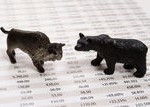Could 2013 end up being the best year for stocks since 1995?
In financial terms, 2013 has been a very nice year – a year in which the economy, the housing and business sectors and the stock market have all improved. Looking back over the year to date, it is particularly amazing to see how stocks have soared in the face of many challenges – some of which proved tougher than others.
Wall Street is enjoying a banner year. As November wraps up, the S&P 500 is up more than 29% YTD and 32% in the past 12 months. If the S&P gains another 2% by year’s end, it will have its best year since 1995. Even if the index has a flat December, it will have its best year since 1997. In addition, it has climbed 166% from its March 2009 bear market low to the present.1,2,3
Opening an even wider window, the total-market Wilshire 5000 index closed at 19,210.45 on November 27, 180% above its March 2009 low of 6,858.43. The optimism has truly carried worldwide: global equities have gained more than $8 trillion in value during 2013.3,4,5
Once again, patience has been the investor’s friend. Even in a good year for stocks like this, you still have to keep from being rattled by the headlines. If you visit some of the popular financial websites with any frequency, you may have seen warnings of a new stock bubble, prognostications that 2014 will bring minimal stock gains, and so forth. This could possibly prove true; then again, those assertions may look foolish six months from now.
Dire warnings (and memories of 2008) do make people cynical about stocks. In a recent University of Chicago/Northwestern University quarterly investor survey of 1,000+ respondents, just 17% said they trusted Wall Street. In comparison, 34% said they trusted banks.6
In a strange way, this degree of distrust could be a good sign for the health of the bull market. Historically, individual investors are impatient – they get out of stocks too soon and get back into stocks too late. Analysts pay attention to their inefficient market timing. When even the most timid bears are putting money into equities, it may be a sign that the bulls are getting tired. It doesn’t seem that we have reached that point yet. The Investment Company Institute has recorded net inflows into mutual funds for 2013, but that follows six straight years of net outflows.6
For stocks, 2013 is kind of like 2012 – only better. This year, Wall Street has put up with a federal government shutdown, a crisis in Syria that threatened to require a U.S. military response, the sequestration cuts, anxiety from the Cyprus banking quagmire, and constant worries about the Federal Reserve halting its economic stimulus. Here we are, November is ending, the Dow is above 16,000 and the S&P is above 1,800. In 2012, you had the fiscal cliff looming, household income hitting a 17-year low, new recessions in Japan and Europe, slower growth in China, and bond guru Bill Gross talking about “the death of equities.” Even so, the S&P rose 13.41% on the year.1,2,7
Be thankful. Many Americans have seen their job prospects, finances, and communities improve this year. Whether you are bullish or bearish, whether you are wealthy or building wealth, whether you are retired or saving for retirement, this is something to be thankful for.
Registered Representative, Securities offered through Cambridge Investment Research, Inc., a Broker/Dealer, Member FINRA/SIPC. Investment Advisor Representative, Cambridge Investment Research Advisors, Inc., a Registered Investment Advisor. Cambridge and North Light Financial Services are not affiliated. Cambridge does not offer tax advice. Office of Supervisory Jurisdiction: 46 Accord Park Drive / Norwell, MA 02061 Phone: 781-878-4063
This material was prepared by MarketingLibrary.Net Inc., and does not necessarily represent the views of the presenting party, nor their affiliates. All information is believed to be from reliable sources; however we make no representation as to its completeness or accuracy. Please note – investing involves risk, and past performance is no guarantee of future results. The publisher is not engaged in rendering legal, accounting or other professional services. If assistance is needed, the reader is advised to engage the services of a competent professional. This information should not be construed as investment, tax or legal advice and may not be relied on for the purpose of avoiding any Federal tax penalty. This is neither a solicitation nor recommendation to purchase or sell any investment or insurance product or service, and should not be relied upon as such. All indices are unmanaged and are not illustrative of any particular investment.
Citations.
1 – bloomberg.com/quote/SPX:IND 2 – 1stock1.com/1stock1_141.htm [11/27/13] 3 – bloomberg.com/news/2013-11-27/asia-stocks-fall-after-u-s-consumer-confidence-declines.html [11/27/13] 4 – investing.money.msn.com/investments/market-index/?symbol=%24US%3aW5000 [11/27/13] 5 – business.financialpost.com/2011/01/18/wilshire-5000-up-100-since-march-2009-lows/ [1/18/11] 6 – azcentral.com/business/consumer/articles/20131023signs-bubble-market-wiles.html [10/23/13] 7 – money.usnews.com/money/blogs/the-smarter-mutual-fund-investor/2013/11/26/your-biggest-enemy-may-be-financial-news [11/26/13]





